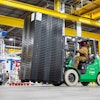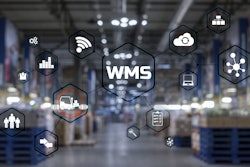
U.S. manufacturers say it’s harder to do business now than during the pandemic, with 78% of manufacturers saying the past six months have presented significant challenges, citing interest rate increases (28%), increasingly complex global supply chains (28%), weak consumer demand (25%), and pressure from consumers on price (25%).
As a result of challenging economic conditions, U.S. manufacturers are streamlining their operations and costs (47%), incorporating AI into supply chains (38%) and focusing on protecting margins (36%). A further 69% of manufacturers have started to reshore their supply chains - a process in which companies move production from overseas to the countries where goods are sold.
"In the face of a tougher business landscape, US manufacturers are navigating a maze of challenges, from interest rate hikes to supply chain complexities and consumer demand shifts," says Don Holm, global vice president, Value Consulting, at Medius. "Despite these challenges, a remarkable 69% of manufacturers are reshoring their operations, spurred on by tech advancements and the opportunity of having greater security within their supply chains, without the hefty price tag which used to be associated with onshore production. And it's just the beginning, as manufacturers embrace AI and automation, with the promise of not just surviving but thriving in the shifting economic tides.”
Reshoring is not just a trend; but grounded in the realities of broad geopolitical changes. It's positive to see US manufacturers embrace these changes, and even more, have successful outcomes. But taking up reshoring won’t be without its challenges and must be accompanied by equally seismic changes in regard to education and skills," says Harry C. Moser, founder and president at Reshoring Initiative.
Key Takeaways:
- 94% of manufacturers engaged in the reshoring process report successful outcomes. A significant quarter of them (23%) are enjoying enhanced value and heightened security. These shifts are attributed to overseas supplier price hikes (27%) and advancements in technology (22%). Additionally, 93% of manufacturers are planning to increase the pace of reshoring within their supply chains over the next two years.
- When asked about the biggest barriers to reshoring, business leaders stated it was concerns about rising prices (36%), followed by concerns about the risks of changing suppliers (34%), and rising operational costs (33%). Manufacturers also said their reshoring plans will mean they will need more specialist staff in the US to help with the reshoring process (58%).
- Propelled by the opportunity for a more secure supply chain and lower costs, business leaders are also encouraged by technological advancements, saying AI driven tracking platforms (34%), data analytics for risk management (33%), and Generative AI in supply chain management (32%) are enabling the move towards reshoring. Business leaders have also been encouraged by automation as they expect a shorter payback time between making an investment in automation and seeing a return on that investment - 88% of manufacturers say they expect a fast return on investment due to automation in the supply chain.
- As manufacturers start reshoring they expect customers to reap the rewards, with the ability to have the products they want faster (47%), cheaper products as business costs come down (45%), and higher quality products (44%). Producing onshore is also expected to have wider ramifications for how the economy operates at large, as multiple different industries benefit from having production onshore.




















